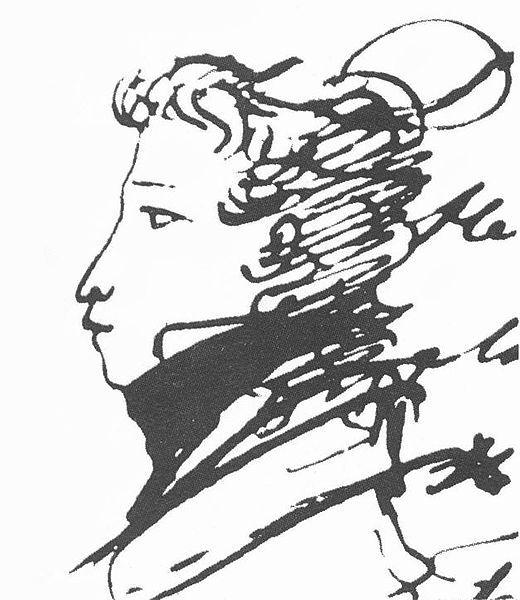A.S. Pushkin is not only at the origins of our national poetry, but also prose. His works are magnificent both on their own and as examples of realistic, psychological texts that harmoniously combine semantic wisdom, liveliness and expressiveness of the language, accuracy in portraying characters, unobtrusiveness, a friendly, trusting attitude towards readers.
Writing history
A reverent, respectful attitude to the history of one’s kind, one’s own country, “love for one’s own ashes” is the whole of Pushkin. His Captain's Daughter is the first historical work in Russian literature. Before its publication, Russian fiction was exclusively superficial, entertaining in nature. And its content was reduced to mystical and terrible episodes framed as if framed in freely interpreted conflicts of history. Pushkin went the other way. His “captain’s daughter” is historical prose, and the fictional storyline from the biography of Pyotr Grinev and Masha Mironova is just a backdrop on which the main figure of the story, rebellious rebel Emelyan Pugachev, looms brightly and convexly . The events of the peasant uprising and the outbreak of the popular war of 1773-75. - This is the subject of research, which occupies the imagination and mind of the writer. No wonder Pushkin worked so seriously and painstakingly in the archives. The “Captain's Daughter” was created after the author’s trip to the Urals, to the places where Peter III once ruled, as Pugachev called himself. Alexander Sergeevich wrote down stories about the “Emelka’s reign”, songs about him, legends that were passed on by word of mouth by eyewitnesses and participants in the events. All the collected material helped the writer create a truly true historical canvas, which was published in one of the issues of the journal Sovremennik for 1836. True, then, Pushkin did not indicate his authorship: “The Captain's Daughter” turned out to be a rather seditious work, and even a separate chapter, which described the revolt of the peasants of the Grinev village, was not included in the general text.
Plot and plot
Recall the main plot points of the work. The narration is conducted on behalf of the main (fictional) character - Peter Grinev. He is a nobleman from an old, poor family. His father, a retired military officer, a man of strict rules, principled and honest, sends his son to serve in a distant garrison so that he can be husband, cultivate character and will, become a true defender of the Christian faith, the king and the fatherland. So Pushkin’s novel “The Captain's Daughter” raises, on the one hand, the topic of upbringing of the young noble generation that is relevant for that time, and, on the other, the theme of
honor and dignity, faith in oneself, one’s moral code, and one’s convictions. They are realized in parting words spoken by Petrusha by his father at parting: “Take care of the honor from a young age”. On the way to the
Belogorsk fortress, after various adventures, during the steppe snowstorm, Grinev meets with someone who will radically change his fate several times - with Pugachev, then - a tramp-counselor. The hare sheepskin donated to the "scum" will soon serve Petrushe well. Many events took place in the fortress with Grinev, which had an important influence on the formation of his moral and mental appearance. From a short-lived undergrowth, he turns into a serious, restrained, honest, decent nobleman and person. Vivid examples of this were relations with Masha, behavior in defending the fortress and in captivity at Pugachev, behavior in conclusion, in which the young man was denounced by Shvabrin. But it was clear to the "insightful reader" that the main face of Pushkin’s work “The Captain's Daughter” is still not Grinyov or Masha, not even the “good lady” Catherine II, but the “convict, bandit and robber” Cossack Emelyan. He leaves Peter alive, knowing how to appreciate and understand his courage; saves from Shvabrin Masha, the daughter of her opponents; arranges their happy fate.

The main themes of the work
The story "The Captain's Daughter" is a multifaceted work. It examines the socio-historical problems of the post-Petrine era. The confrontation between state power and the people, the attitude of the autocracy towards the people - all this manifested itself quite clearly and visibly. The themes raised in the story can be attributed to universal, universal. This is honor, fidelity in love and friendship, nobility, spiritual purity. And also the topic of historical truth, which is higher than estate and other prejudices.